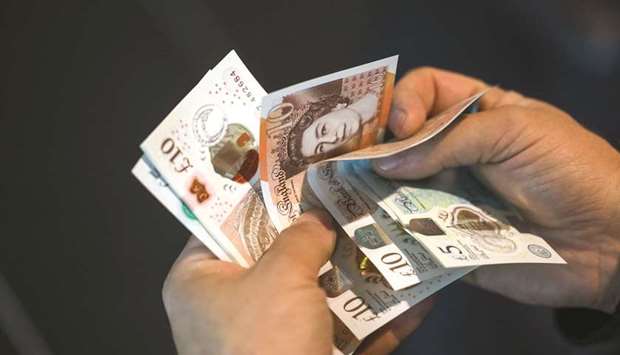Sterling tumbled from a two-month high after UK Prime Minister Theresa May said on Friday that Brexit negotiations were at an impasse. Her comments came after a summit in Salzburg, Austria, led to criticism by the bloc of the UK’s stance. With the opposition Labour party’s annual conference beginning Sunday and May’s Conservative party’s meeting a week away, investors face heightened volatility before a November deadline to reach a deal.
“The run-up to the October or November deadline is likely to be fraught with headline and counter headline so the pound is likely to be volatile,” said James Athey, a money manager at Aberdeen Standard Investments. “Between now and October the recent lows are possible, around $1.26, but in the end I still expect a deal to be done.”
May hit back Friday at EU leaders, accusing the bloc of failing to treat the UK with respect, after they bluntly rejected her Brexit blueprint at the Salzburg meeting. Three-month volatility on pound-dollar climbed to the highest level since March 2017 following the statement as options traders rushed for cover.
The Labour party’s annual conference may also provide dramatic price swings, with the party set to debate its Brexit position on Tuesday. May needs to get any Brexit deal through parliament, where Labour and rebels from her own party may vote against it.
“The Labour party conference could lead to a substantial shift in Brexit policy, where it could back a referendum on the terms of the final deal in a scenario where the meaningful vote on the Brexit deal in parliament fails to be passed,” said Jordan Rochester, a currency strategist at Nomura International Plc. “Right now the market deems it a risk not worth considering to hedge for, but if Labour does back a second referendum it may be worth at least a second thought.”
It’s not a given that such a shift would happen, with Labour’s economy spokesman John McDonnell saying recently that the party has an “overwhelming preference for a general election” followed by any Brexit deal being “properly debated.”
Still, with all of this political risk on the horizon, it’s wise to hedge for every potential scenario, according to Neil Jones, head of hedge-fund sales at Mizuho Bank. He recommended buying downside strikes through the next few weeks, saying that the market buying back shorts has made hedging cheaper and “all of the above could impact on the pound adversely.”
Others advise looking through the political noise and positioning for the pound to rally and gilts to sell off in the longer term. Several banks have come out in favour of going long sterling versus the euro, and the market pricing of a no-deal Brexit is too high, according to Andrew Balls, chief investment officer of global fixed income at Pacific Investment Management Co.
“The Europeans seem to enjoy this process and it’s not just in Brexit, it’s with everything they do, eventually they stay up all night at the end and a deal is done,” Balls said on Friday in an interview with Bloomberg Television’s Francine Lacqua, before May’s comments. “Aside from the headlines and the theatre, there’s going to be a deal by the end of this year.”

